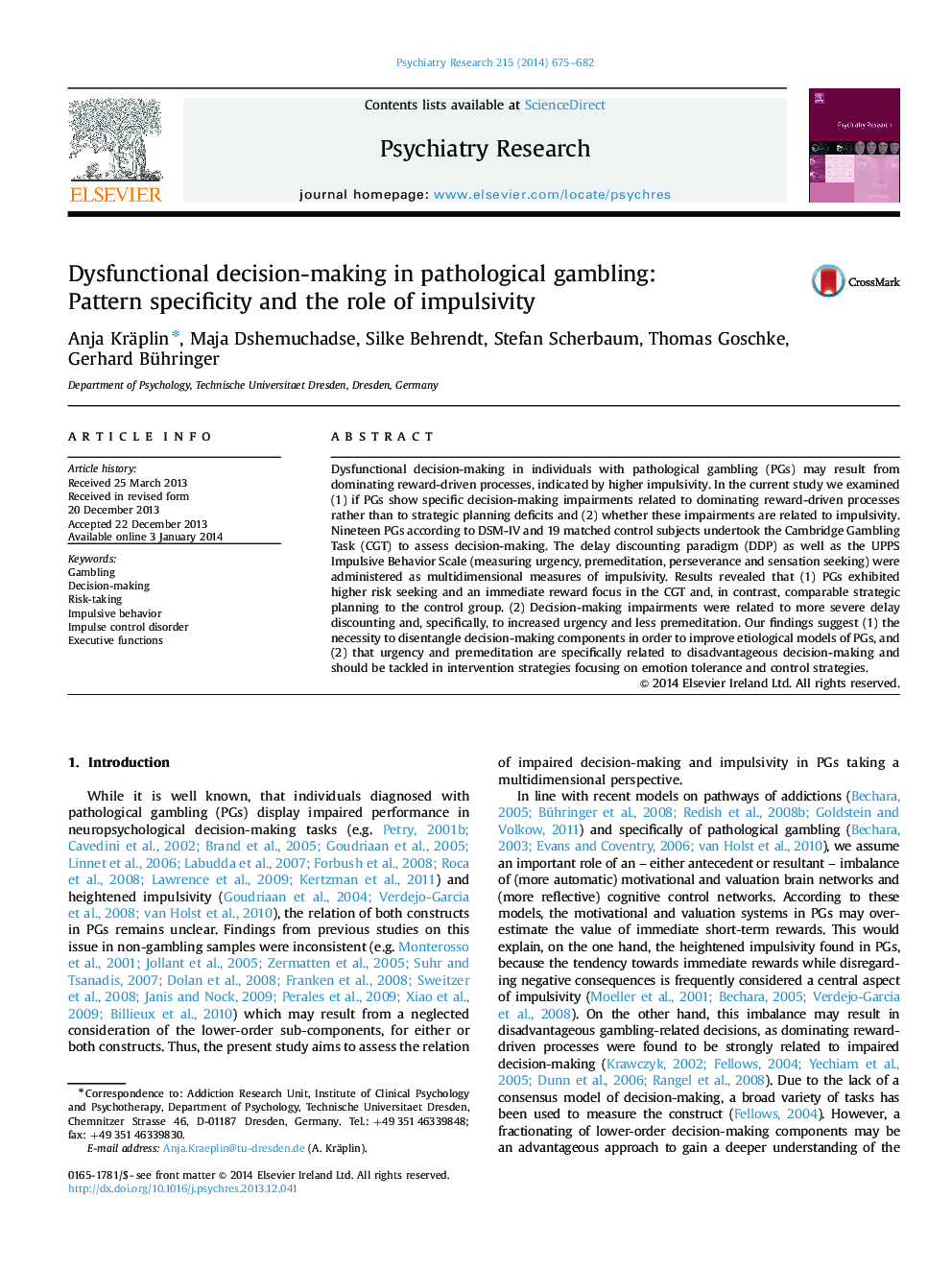| Article ID | Journal | Published Year | Pages | File Type |
|---|---|---|---|---|
| 10303900 | Psychiatry Research | 2014 | 8 Pages |
Abstract
Dysfunctional decision-making in individuals with pathological gambling (PGs) may result from dominating reward-driven processes, indicated by higher impulsivity. In the current study we examined (1) if PGs show specific decision-making impairments related to dominating reward-driven processes rather than to strategic planning deficits and (2) whether these impairments are related to impulsivity. Nineteen PGs according to DSM-IV and 19 matched control subjects undertook the Cambridge Gambling Task (CGT) to assess decision-making. The delay discounting paradigm (DDP) as well as the UPPS Impulsive Behavior Scale (measuring urgency, premeditation, perseverance and sensation seeking) were administered as multidimensional measures of impulsivity. Results revealed that (1) PGs exhibited higher risk seeking and an immediate reward focus in the CGT and, in contrast, comparable strategic planning to the control group. (2) Decision-making impairments were related to more severe delay discounting and, specifically, to increased urgency and less premeditation. Our findings suggest (1) the necessity to disentangle decision-making components in order to improve etiological models of PGs, and (2) that urgency and premeditation are specifically related to disadvantageous decision-making and should be tackled in intervention strategies focusing on emotion tolerance and control strategies.
Keywords
Related Topics
Life Sciences
Neuroscience
Biological Psychiatry
Authors
Anja Kräplin, Maja Dshemuchadse, Silke Behrendt, Stefan Scherbaum, Thomas Goschke, Gerhard Bühringer,
